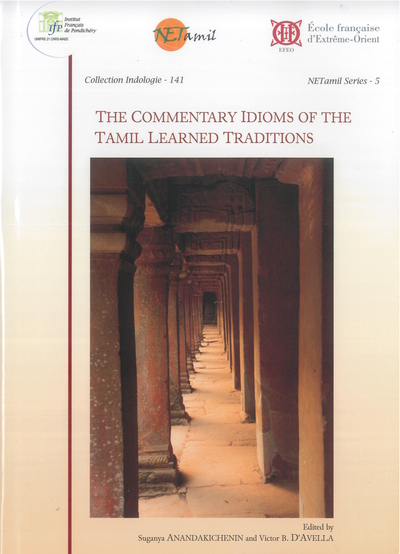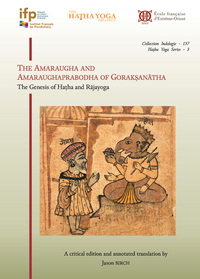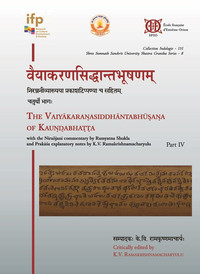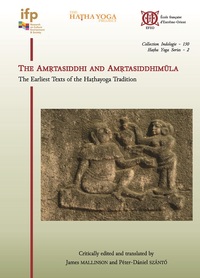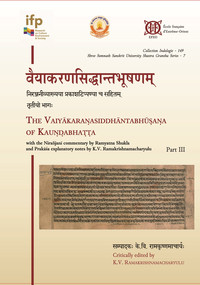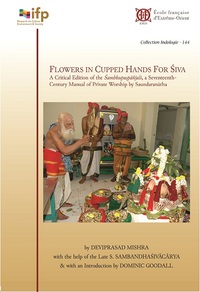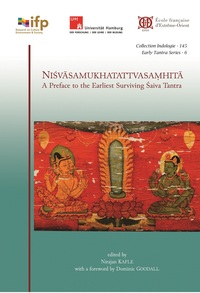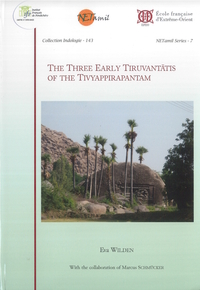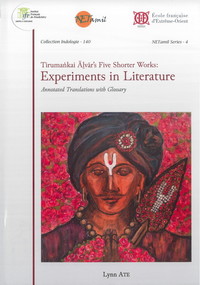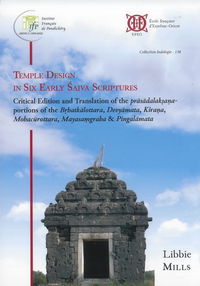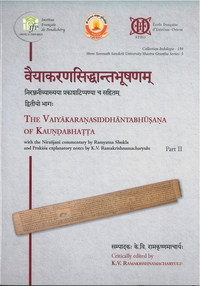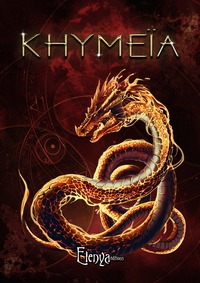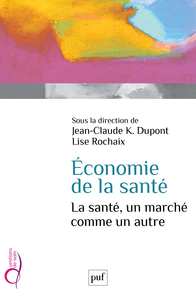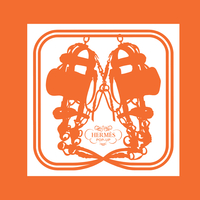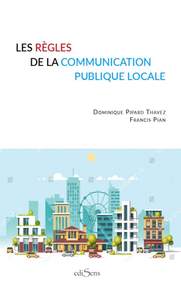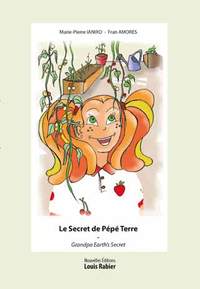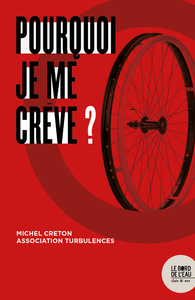Nous utilisons des cookies pour améliorer votre expérience. Pour nous conformer à la nouvelle directive sur la vie privée, nous devons demander votre consentement à l’utilisation de ces cookies. En savoir plus.
The Commentary Idioms of the Tamil Learned Traditions
Efeo - EAN : 9782855392363
Édition papier
EAN : 9782855392363
Paru le : 14 févr. 2020
43,00 €
40,76 €
Disponible
Pour connaître votre prix et commander, identifiez-vous
Notre engagement qualité
-
 Livraison gratuite
Livraison gratuite
en France sans minimum
de commande -
 Manquants maintenus
Manquants maintenus
en commande
automatiquement -
 Un interlocuteur
Un interlocuteur
unique pour toutes
vos commandes -
 Toutes les licences
Toutes les licences
numériques du marché
au tarif éditeur -
 Assistance téléphonique
Assistance téléphonique
personalisée sur le
numérique -
 Service client
Service client
Du Lundi au vendredi
de 9h à 18h
- EAN13 : 9782855392363
- Réf. éditeur : CI 141
- Collection : COLL. INDOLOGIE
- Editeur : Efeo
- Date Parution : 14 févr. 2020
- Disponibilite : Disponible
- Barème de remise : NS
- Nombre de pages : 607
- Format : H:245 mm L:175 mm E:40 mm
- Poids : 1.2kg
- Interdit de retour : Retour interdit
-
Résumé :
This volume presents several detailed studies of the commentary traditions of South India with a particular emphasis on Tamil, but extended to Sanskrit and Telugu as well.
The importance of commentaries for our understanding of classical Indian languages and their literatures has long been acknowledged, but rarely have the commentaries themselves, especially minor ones, been the subject of systematic study. Contributors to this volume begin to remedy this desideratum in several ways. Some describe the specific methods employed by particular commentators and offer translations of passages, many of which have never before been rendered into English. Others examine what impact ancient commentators have had on the development of modern philological and lexicographical tools. More broadly, the role of the commen-tary in textual exegesis is taken up by several authors, and, in one case, this has led to an extension of the very notion of a commentary to include translation. This volume will serve as an important reference point for further research into com-mentarial traditions both in India and around the world.
Ce volume contient plusieurs articles qui étudient de façon approfondie la tradition de commentaire en Inde du Sud, couvrant principalement la langue tamoule, mais également le sanskrit et le télougou. L'importance des commentaires pour notre compréhension des textes classiques de l'Inde est reconnue depuis longtemps, mais les commentaires eux-mêmes, surtout ceux qui sont considérés comme "mineurs", ont rarement été étudiés pour eux-mêmes de façon systéma-tique. Les contributeurs de ce volume ont entrepris de combler ce manque. Les uns décrivent les méthodes spécifiques employées par tel ou tel commentateur et offrent aux lecteurs des traductions d'extraits de commentaires, parmi lesquels beaucoup n'avaient encore jamais été traduits, ni en anglais, ni dans d'autres langues. D'autres examinent l'importance des commentaires anciens dans la genèse des outils modernes de la philologie et de la lexicographie. Plus généralement, le rôle des commentateurs dans l'exégèse textuelle est examiné par plusieurs auteurs. Dans un cas, la notion de commentaire est étendue jusqu'à inclure l'acte de traduction. Ce volume sera un point de référence important pour les recherches à venir sur les traditions de commentaire, en Inde et dans d'autres parties du monde.
About the author
Suganya Anandakichenin, a postdoctoral research fellow at the Centre for the Study of Manuscript Cultures, University of Hamburg, specialises in the alvar bhakti poetry as well as Srivaisnava Manipravalam literature.
Victor D’Avella is a postdoctoral researcher at the Universi-ty of Hamburg, working for the international project “Texts Surrounding Texts” (ANR/DFG) and formerly part of the ERC-funded NETamil project. His main area of interest is the linguistic and literary traditions of India with a focus on Sanskrit, Tamil,

